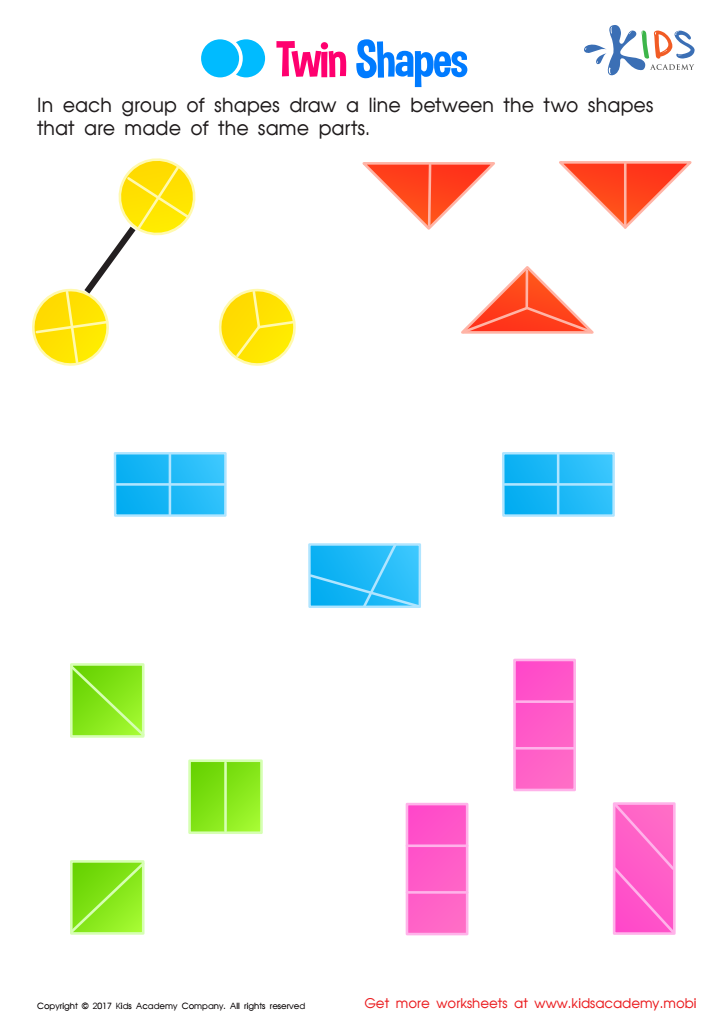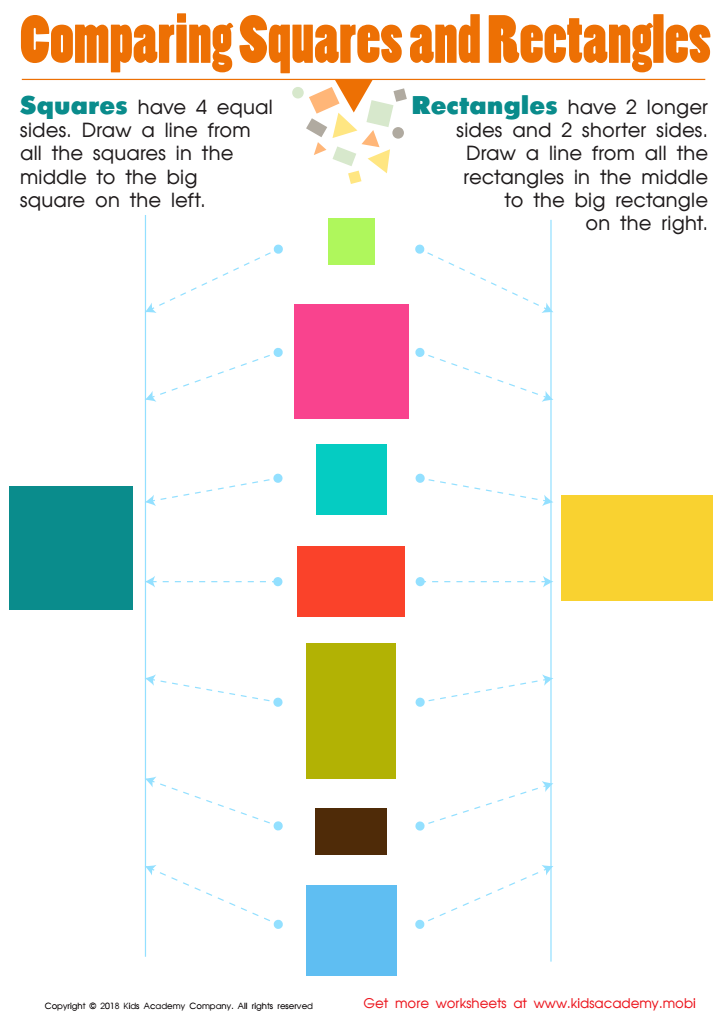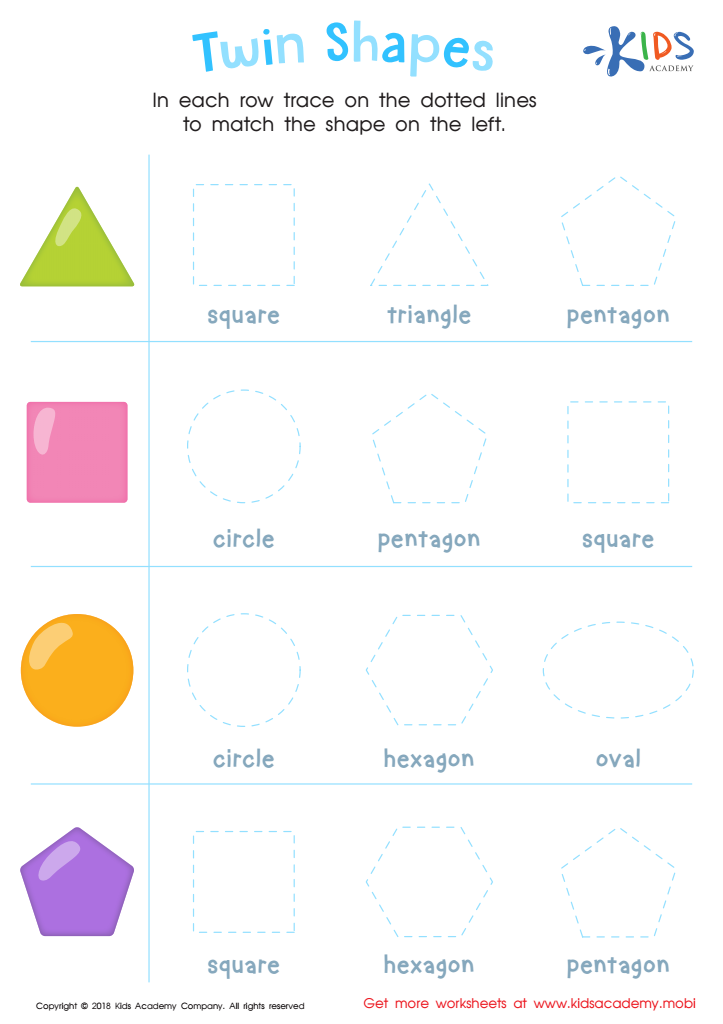Comparing shapes Math Worksheets for Ages 5-6
3 filtered results
-
From - To
Enhance your child's geometry skills with our "Comparing Shapes Math Worksheets for Ages 5-6". Created for young minds, these printable worksheets introduce basic geometric concepts, helping children identify, compare, and sort shapes like squares, circles, triangles, and more. Each fun and engaging activity is designed to strengthen visual-spatial awareness and critical thinking. Aligned with early learning standards, these worksheets build a strong foundation for future math success. Perfect for classroom use or at-home practice, these resources make learning about shapes an enjoyable adventure. Help your child discover the exciting world of geometry today!


Twin Shapes Worksheet


Comparing Squares Rectangles Worksheet


Twin Shapes Dot-to-Dot Worksheet
Teaching children aged 5-6 to compare shapes forms a critical cornerstone for their cognitive and mathematical development. At this young age, learning about shapes extends beyond mere recognition; it nurtures essential skills such as reasoning, problem-solving, and spatial awareness. Identifying and comparing shapes helps kids understand similarities and differences, fostering the ability to classify objects—a fundamental thinking skill that will aid in various academic disciplines, including mathematics, science, and language arts.
When children compare shapes, they develop vocabulary skills by learning descriptive terms like "sides," "corners," and "edges." This descriptive ability sharpens their communication skills. Moreover, comparing shapes lays groundwork for more complex geometrical concepts they will encounter in later grades. By observing how two shapes are the same or different, they practice analytical thinking and observational skills.
Engaging youngsters in such activities also supports their understanding of symmetry, pattern recognition, and basic geometry ideas, playing a crucial part in their overall intellectual growth. Teachers and parents thus have a powerful opportunity to provide a strong mathematical foundation through simple yet meaningful lessons involving shape comparison. This creates a solid basis for more advanced math skills, critical thinking, and everyday problem-solving abilities, making it a significant aspect of early education.
 Assign to My Students
Assign to My Students

















